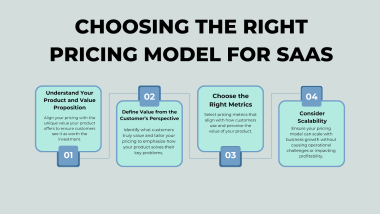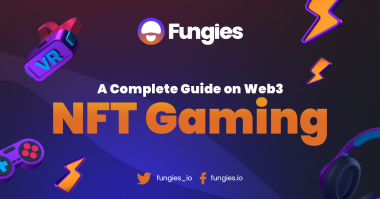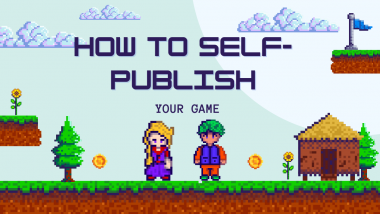In the vast and ever-growing world of indie game development, it can be challenging for developers to navigate through the multitude of resources available. Indie game websites play a crucial role in providing a platform for indie game developers to showcase their creations, access tutorials, tools, and connect with the community. In this article, we will explore the top 20 popular indie game websites that cater to the needs of indie game developers, emphasizing keywords such as “indie game sites” and “indie game websites” to optimize search engine rankings.
- Indie DB (www.indiedb.com) Indie DB is a leading indie game website that offers a wide range of resources, including game listings, development tutorials, forums, and news articles. It provides a platform for indie developers to promote and share their projects with a large and active community.
- Itch.io (itch.io) Itch.io is a popular platform for indie game developers, providing a marketplace for distributing and selling indie games. It also offers game jams, a community forum, and a variety of tools for game development.
- Game Jolt (gamejolt.com) Game Jolt is an indie game distribution platform that allows developers to upload, sell, and promote their games. It features a community-driven marketplace, forums, and showcases various indie games.
- TIGSource (www.tigsource.com) TIGSource is a prominent indie game website that focuses on showcasing unique and experimental games. It features forums, development logs, and articles on game development.
- IndieGameMag (indiegamemag.com) IndieGameMag is an online magazine dedicated to indie game news, reviews, and features. It covers a wide range of indie games, interviews developers, and provides insights into the industry.
- IndieGames.com (www.indiegames.com) IndieGames.com offers news, reviews, and features about indie games across various platforms. It highlights innovative and lesser-known indie titles, making it a valuable resource for developers.
- The Indie Game Website (indiegameswebsite.com) The Indie Game Website provides reviews, news, and interviews related to indie games. It focuses on promoting the work of indie developers and sharing valuable insights.
- Pixel Prospector (www.pixelprospector.com) Pixel Prospector is a comprehensive resource hub for indie game developers. It offers curated lists of indie games, tutorials, marketing resources, and showcases of game jams.
- Indie Game Bundles (indiegamebundles.com) Indie Game Bundles features curated bundles of indie games available for purchase at discounted prices. It highlights various game sales, helping developers reach a broader audience.
- The Indie Game Magazine publishes digital and print issues covering indie games, interviews, and reviews. It provides a platform for developers to showcase their work and gain exposure.
- Indie Retro News (www.indieretronews.com) Indie Retro News focuses on retro-style indie games, offering news, reviews, and features related to this niche. It is a valuable resource for developers working on retro-themed projects.
- Warp Door (warpdoor.com) Warp Door curates a collection of indie games, focusing on unique and unusual titles. It provides exposure to lesser-known games and offers a refreshing perspective for developers.
- Alpha Beta Gamer (www.alphabetagamer.com) Alpha Beta Gamer features alpha, beta, and prototype versions of indie games, allowing developers to gain early feedback and exposure. It also offers game reviews and news.
- Indie Watch (indiewatch.net) Indie Watch covers indie game news, reviews, and features. It provides a platform for developers to showcase their games and connect with the indie game community.
- The Indie Game Report (theindiegamereport.com) The Indie Game Report offers in-depth reviews, interviews, and features about indie games. It focuses on highlighting unique and innovative projects and provides valuable insights for developers.
- Indie Hangover (indiehangover.com) Indie Hangover covers indie games, events, and industry news. It offers reviews, previews, and interviews, catering to the interests of indie game developers and enthusiasts.
- Indie Retro News (indieretronews.com) Indie Retro News specializes in retro-inspired indie games, providing news, reviews, and features related to this genre. It is a valuable resource for developers working on retro-themed projects.
- Indie DB Developer Resources (www.indiedb.com/resources) Indie DB’s Developer Resources section offers tutorials, guides, and tools to support indie game development. It covers various aspects of game creation and provides valuable insights.
- Indie Game Developers Facebook Group (www.facebook.com/groups/indiegamedevelopers) The Indie Game Developers Facebook Group is a community-driven space for indie game developers to connect, share resources, seek advice, and collaborate. It offers a supportive environment for developers at all stages of their projects.
- Indie Game Reddit Community (www.reddit.com/r/indiegaming) The Indie Game subreddit is a vibrant community where developers, gamers, and enthusiasts discuss and share indie games. It offers a platform to showcase games, seek feedback, and engage with like-minded individuals.
Key Considerations for Starting an Indie Game: The Power of Having Your Own Website
Embarking on the journey of creating an indie game is an exhilarating endeavor filled with boundless creativity and passion. While the process of game development itself requires meticulous planning and execution, it is equally crucial for indie developers to focus on the business aspects of their projects. One essential consideration is the significance of having your own website, providing a direct avenue for selling games to players without solely relying on established platforms like Steam. In this article, we will delve into the key factors to consider when starting an indie game, with a particular emphasis on the importance of having a dedicated website for game sales.
- Define Your Vision and Goals
Before diving into the development process, it is essential to define your vision and goals for the indie game. Determine the genre, target audience, gameplay mechanics, and unique selling points that set your game apart. Establishing a clear vision will guide your decision-making throughout the development process.
- Create a Compelling Game Concept
Crafting a compelling game concept is pivotal to capturing the attention of players. Develop a captivating storyline, engaging gameplay mechanics, and visually appealing art style. A unique and well-executed game concept will help differentiate your indie game in a crowded market.
- Thoroughly Plan Your Development Process
Careful planning is crucial to ensure the smooth progress of your indie game project. Break down the development process into manageable milestones, allocate time and resources accordingly, and establish a realistic timeline. A well-structured development plan will enhance productivity and help meet deadlines.
- Build a Talented and Dedicated Team
Collaboration is key in indie game development. Assemble a team of talented individuals who are passionate about the project and possess the necessary skills. Choose team members who complement each other’s strengths and create an environment that fosters creativity and teamwork.
- Embrace Agile Development Methodologies
Adopting agile development methodologies, such as Scrum or Kanban, can significantly improve the efficiency and flexibility of your development process. These methodologies prioritize iterative development, allowing for regular feedback, adjustments, and continuous improvement.
- Establish an Online Presence
Having a strong online presence is essential for indie game developers. Create social media accounts, such as Twitter, Facebook, and Instagram, to engage with your target audience, share development updates, and generate excitement for your game. Interacting with the community helps build a loyal fan base.
- Invest in a Professional Website
One of the most critical steps for indie game developers is to invest in a professional website. While established platforms like Steam offer excellent exposure, having your own website provides several advantages. It allows you to sell games directly to players without relying solely on third-party platforms, giving you more control over pricing, distribution, and revenue.
- Showcasing and Selling Games on Your Website
When designing your website, ensure it is visually appealing, easy to navigate, and showcases your games effectively. Provide detailed information about your game, including features, screenshots, videos, and gameplay trailers. Implement a secure payment gateway to facilitate seamless transactions, and offer options for digital downloads or physical merchandise.
- Building a Community Around Your Website
Creating a community around your website is crucial for fostering player engagement and loyalty. Incorporate features like forums, blogs, and a newsletter to facilitate communication and interaction with your audience. Regularly update your website with new content, development updates, and behind-the-scenes insights to keep players excited about your games.
- Emphasize Customer Support and Feedback
Prioritize customer support and actively seek player feedback. Respond promptly to inquiries, address issues, and continuously improve your games based on player suggestions. Building a reputation for exceptional customer support will foster player loyalty and positive word-of-mouth.
- Implement Marketing and Promotion Strategies
Marketing and promotion play a vital role in gaining visibility for your indie games. Utilize various marketing channels such as social media, game conferences, game awards, and influencer collaborations to expand your reach. Develop a comprehensive marketing plan and leverage your website as a central hub for all promotional activities.
- Stay Persistent and Adapt to Challenges
The journey of an indie game developer is filled with challenges and setbacks. It is crucial to stay persistent, motivated, and adaptable in the face of adversity. Embrace feedback, learn from failures, and continuously iterate on your game to create the best possible experience for players.
Conclusion
Indie game websites are invaluable resources for indie game developers, providing platforms for exposure, community engagement, tutorials, and tools. The top 20 indie game websites listed above offer a wealth of information, services, and networking opportunities to help developers succeed in their creative endeavors. Whether you’re seeking inspiration, feedback, or guidance, these websites cater to the needs of indie game developers and foster a supportive community. Explore these platforms, leverage their resources, and embrace the vibrant indie game development scene.
Starting an indie game is a thrilling adventure that requires a careful balance between creativity and business acumen. While the development process itself demands attention to detail, it is equally essential to consider the business aspects of your project. Having your own website can significantly impact your success as an indie game developer, allowing you to sell games directly to players without solely relying on established platforms like Steam. By embracing the considerations mentioned in this article, you can embark on a successful indie game journey, connecting directly with your audience and cultivating a loyal community around your brand.






